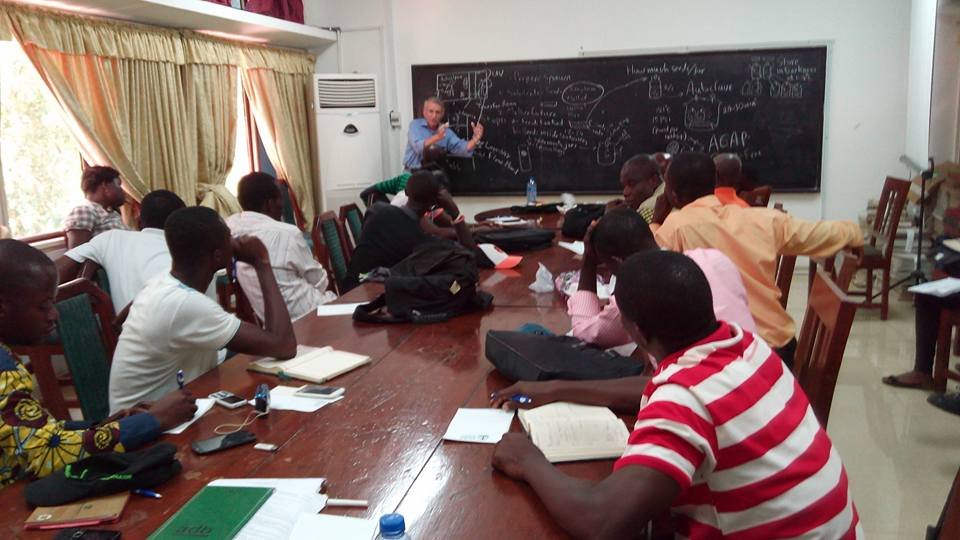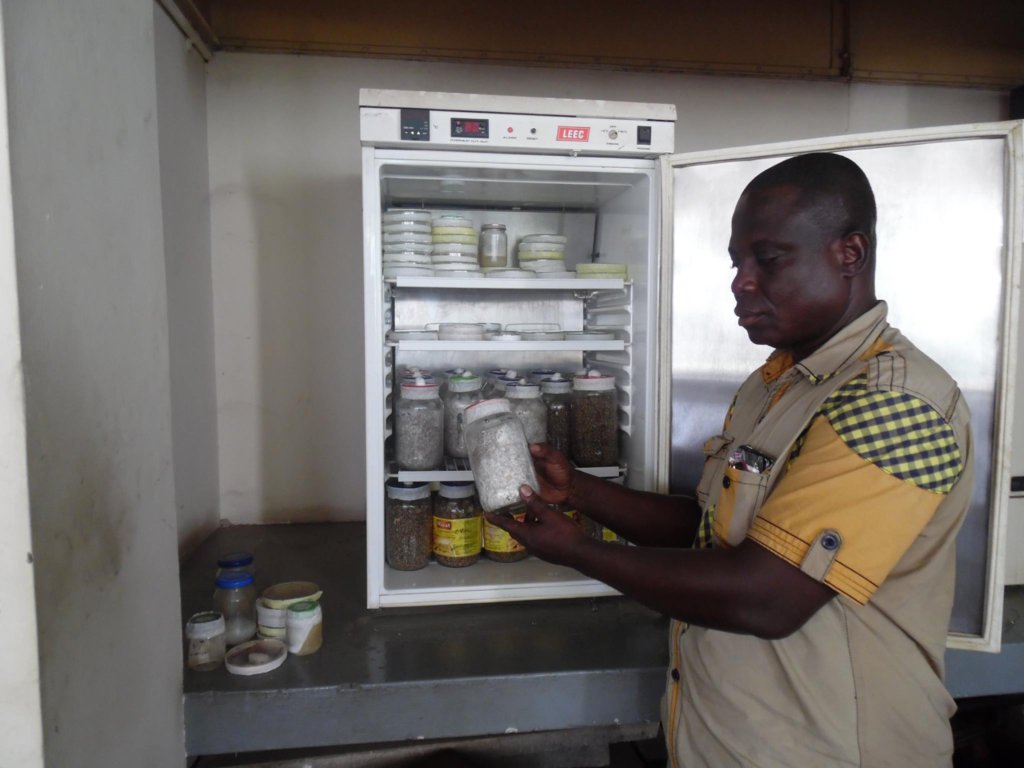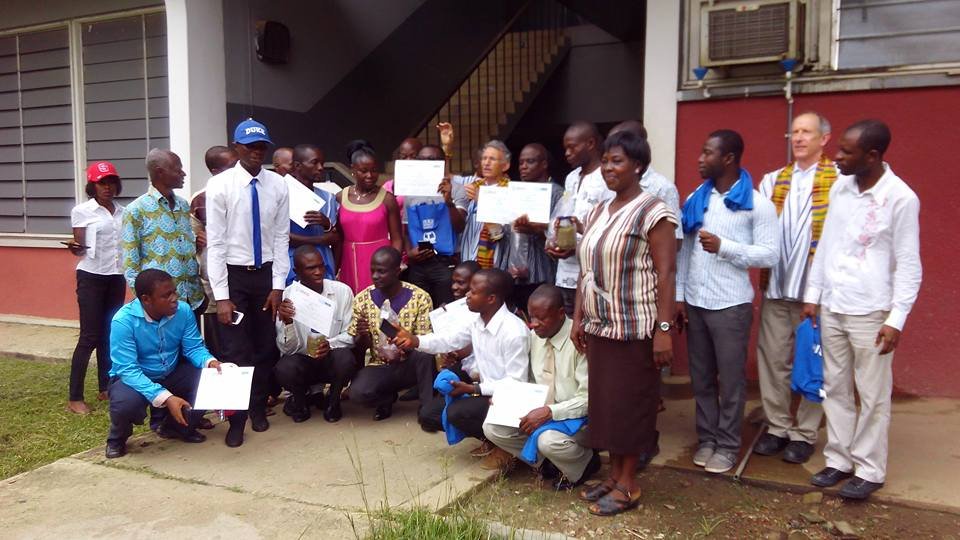By Benjamin Kusi | Country Director
Since opening its doors in 2014, the Frances Mueller and Virginia Lageschulte Training Centre has trained 120 people in six different agro-enterprises: rearing rabbit, poultry, grass cutter and snail, as well as vegetable and mushroom farming. Twelve of the trainees (10%) have established commercial mushroom production.
The mushroom business was initially lucrative, but the producers were soon confronted with challenges: as more people went into the industry, the demand for spawns began to exceed the supply. The problem was compounded as low quality spawns with poor germination found their way onto the market. The smallholder farmers lost huge sums of money due to bad spawns. Understandably, this adversely affected farmers’ interest and many faced returning to unemployment.
Through a partnership with the Farmer-to-Farmer program, two skilled volunteers from the United States, Dr. Khalid M. Hameed and Dr. Henry Van Tuyl Cotter, traveled to Ghana to train farmers on spawn production so they wouldn't have to rely on untrustworthy sources any longer. Drs. Hameed and Cotter also shared their expertise on marketing mushrooms with those in attendance.
For two weeks in May, twenty four (24) participants learned about the best practices in mushroom production. Participants included practicing mushroom producers, Self-Help staff members, and students from Kwame Nkrumah University of Science and Technology (KNUST). Most participants had no more than senior high school education, and enjoyed the opportunity to access free higher-level education.
Held in the Plant Pathology section of KNUST, the training was 80% practical and 20% theory. Participants learned how to prepare potato dextrose agar, malt agar, tissue culture, autoclaving, inoculation, and spawning, as well as environmental conditions suitable for incubation and fruiting. Good marketing practices such as branding, packaging, handling and pricing were also reviewed.
During the practical labs, participants produced over 2,000mls of agar which was used to prepare tissue culture using oyster mushroom, which is the most commonly produced among training center graduates. The training also provided an opportunity to produce tissue cultures for other mushroom species to diversify businesses. These cultures were used to inoculate sorghum and millet in plastic bags to produce spawns.
At the end of the training, participants were given cultures and spawns for multiplication. The participants shared their gratitude with the experts for making the knowledge and skills involved in spawn production accessible even for those with limited formal education. They were extremely thankful for the opportunity offered them.
Three of the participants in particular, Osei, Vivian and Ohene, are making significant progress after the training. They are working with the Plant Pathology Section of KNUST to produce spawns for their own use and also for marketing. Within the first month following training, Ohene had already produced over thirty petri dishes (150ml) of mother culture and twenty (20) jars (800mls) of mother spawns. He is presently producing 400 bottles (120,000mls) of spawn which he will use both for his own production and for sale to farmers who opt not to specialize in spawn production.
This skilled training has rekindled the spirit of the Plant Pathology section to play a lead role in the production of high quality spawns to alleviate the sufferings of farmers. The section has produced its first pure spawn after the training. Festus, a KNUST staff member, promises that this will be sustained to curb incidents of low quality and shortage of spawns among mushroom farmers in Ghana.
This training represents an important next step for the Centre as we help farmers who are prepared to deepen their knowledge access the information they need, and help ensure a stable supply of mushroom spawn for future trainees. Thank you for your support, which helped make this free training available to farmers like Osei, who are working to better provide for their families!
Links:
Project reports on GlobalGiving are posted directly to globalgiving.org by Project Leaders as they are completed, generally every 3-4 months. To protect the integrity of these documents, GlobalGiving does not alter them; therefore you may find some language or formatting issues.
If you donate to this project or have donated to this project, you can receive an email when this project posts a report. You can also subscribe for reports without donating.
Support this important cause by creating a personalized fundraising page.
Start a Fundraiser

